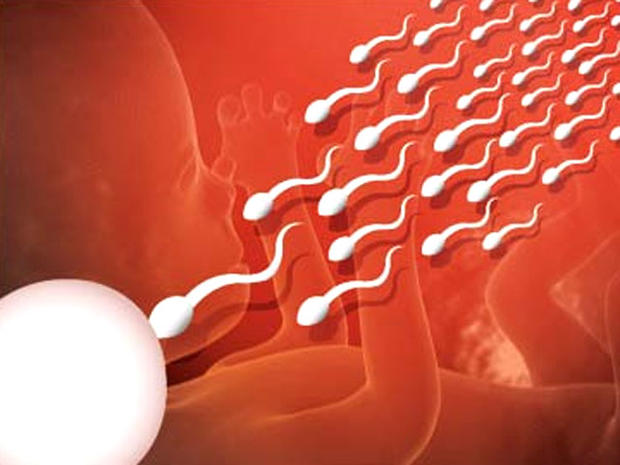Experimental cancer drug makes mice infertile without side effects, scientists claim male birth control discovery
(CBS News) A male birth control pill advanced one step closer to reality, a team of cancer and fertility researchers announced Thursday after their latest discovery.
Sperm gene discovery may lead to male birth control, scientists say
Scientists had been researching a small molecular compound called JQ1, which was meant to block a cancer-causing gene called "BRD4." The compound had previously been shown effective in staving off lung cancer and blood cancers, like leukemia and multiple myeloma, in earlier studies.
Part of the problem with finding a male birth control pill is the challenge of getting a drug across the blood-testis barrier. Just like the blood-brain barrier regulates what cells and compounds come in and out of the brain, the blood-testis barrier physically separates blood vessels and the sperm-producing seminiferous tubules that are found in the testes.
That's when Dr. James Bradner, an oncology researcher at the Harvard-affiliated Dana-Farber Cancer Institute in Boston who had been researching JQ1, wanted to see if the molecule was small enough to cross the blood-testis barrier. He was curious if the compound would affect the BRDT sperm-producing gene associated with that family of proteins he'd been researching for cancer. He called Dr. Martin M. Matzuk, director of the new Center for Drug Discovery and a fertility scientist at Baylor College of Medicine in Houston, and supplied him with JQ1 to begin experimentation.
Matzuk and his colleagues figured out the appropriate amount of the compound to use, then injected mice with a solution over an 18-month period. They saw that the mice had lower overall sperm counts and a decrease in sperm mobility, rendering them infertile but leaving their hormone levels intact. The compound also did not decrease sex drive in mice allowing them to mate normally, nor did it cause other side effects that a hormone-based therapy may cause.
When mice were no longer given the compound, their sperm production went back to normal levels and they were able to have offspring.
The research is published online August 17 in Cell.
"These findings suggest that a reversible, oral male contraceptive may be possible," Bradner said in a written statement. "While we will be conducting more research to see if we can build on our current findings, JQ1 shows initial promise as a lead compound for male contraception."
While there are several male birth control methods in development including a geland sperm-zapping ultrasound, condoms and vasectomies remain the only reliable options for men.
"My hope is within the next 10 years, there will be a drug on the market for men," Matzuk said in an interview with U.S. News & World Report. "There have been some pharmaceutical studies that have gone from having a target [like we do] to having FDA approval within six years. I don't see any reason why this can't be one of them."
And why not? before scientists discovered other therapeutic benefits. Viagra, a pill for treating erectile dysfunction, was originally studied for treating heart-related chest pains before discovering a surprising side effect. The male pattern baldness drug Propecia originally started out as Proscar, a drug that treated enlarged prostates.

